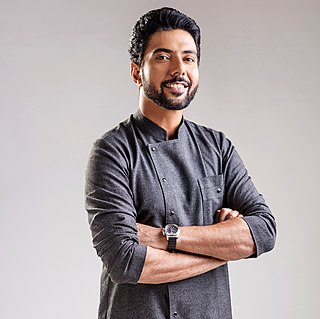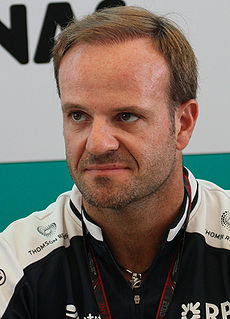A Quote by P. G. Wodehouse
[He] saw that a peculiar expression had come into his nephew's face; an expression a little like that of a young hindu fakir who having settled himself on his first bed of spikes is beginning to wish that he had chosen one of the easier religions.
Related Quotes
He fell in October 1918, on a day that was so quiet and still on the whole front, that the army report confined itself to the single sentence: All quiet on the Western Front. He had fallen forward and lay on the earth as though sleeping. Turning him over one saw that he could not have suffered long; his face had an expression of calm, as though almost glad the end had come.
This was Barrington Erle, a politician of long standing, who was still looked upon by many as a young man, because he had always been known as a young man, and because he had never done anything to compromise his position in that respect. He had not married, or settled himself down in a house of his own, or become subject to the gout, or given up being careful about the fitting of his clothes.
The only one who didn't know was George Lucas. We kept it from him, because we wanted to see what his face looked like when it changed expression--and he fooled us even then. He got Industrial Light and Magic to change his facial expressions for him and THX sound to make the noise of a face-changing expression.
To my way of thinking, the concept drawings that Rembrandt did, the drawings he made that he used to model his artists, to work out the compositions of his paintings: those are cartoons. Look at his sketch for the return of the prodigal son. The expression on the angry younger brother's face. The head is down; the eyebrow is just one curved line over the eyes. It communicates in a very shorthand way. It's beautiful, expressive, and, in a peculiar way, it's more powerful than the kind of stilted, formalized expression in the final painting.
When I first came round in the medical center after my accident, the first face I saw was Ayrton's, with tears in his eyes. I had never seen that with Ayrton before. I just had the impression that he felt as if my accident was like one of his own. He helped me a lot with my career and I can't find the words to describe his loss.
His brother maintained that what sent people backing away was neither his size nor his mother's blood, but solely the expression on his face. To test Samuel's theory, Charles had tried smiling - and then solemnly reported to Samuel that he had been mistaken. When Charles smiled, he told Samuel, people just ran faster.
My father had put these things on the table. I looked at him standing by the sink. He was washing his hands, splashing water on his face. My mamma left us. My brother, too. And now my feckless, reckless uncle had as well. My pa stayed, though. My pa always stayed. I looked at him. And saw the sweat stains on his shirt. And his big, scarred hands. And his dirty, weary face. I remembered how, lying in my bed a few nights before, I had looked forward to showing him my uncle's money. To telling him I was leaving. And I was so ashamed.
It is the duty of all papas and mammas to forbid their children to drink coffee, unless they wish to have little dried-up machines, stunted and old at the age of twenty... once saw a man in London, in Leicester Square, who had been crippled by immoderate indulgence in coffee; he was no longer in any pain, having grown accustomed to his condition, and had cut himself down to five or six cups a day.
He had thrown himself away, he had lost interest in everything, and life, falling in with his feelings, had demanded nothing of him. He had lived as an outsider, an idler and onlooker, well liked in his young manhood, alone in his illness and advancing years. Seized with weariness, he sat down on the wall, and the river murmured darkly in his thoughts.
Moonlight streamed in, sending loving beams over his face. He closed his eyes and basked in it, and I could tell it was calling to him, even though the moon was not full. She didn't speak to me, but Samuel had once described her song to me in the words of a poet. The expression of bliss on his face while he listened to her music made him beautiful.



































